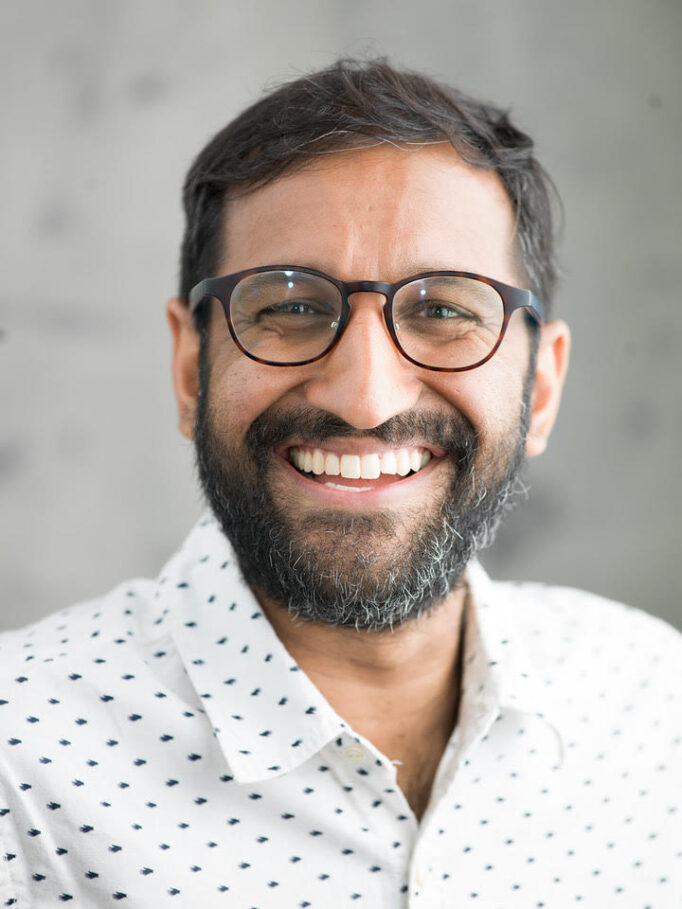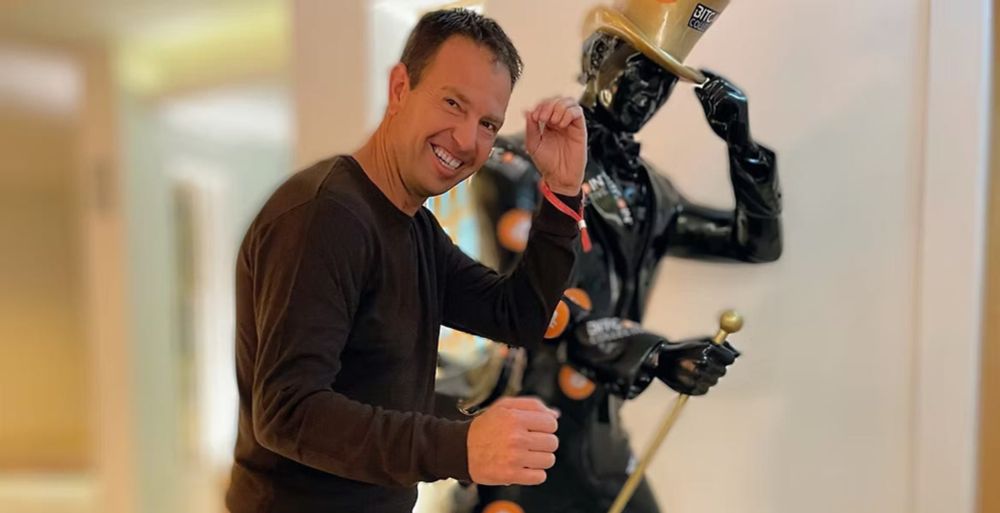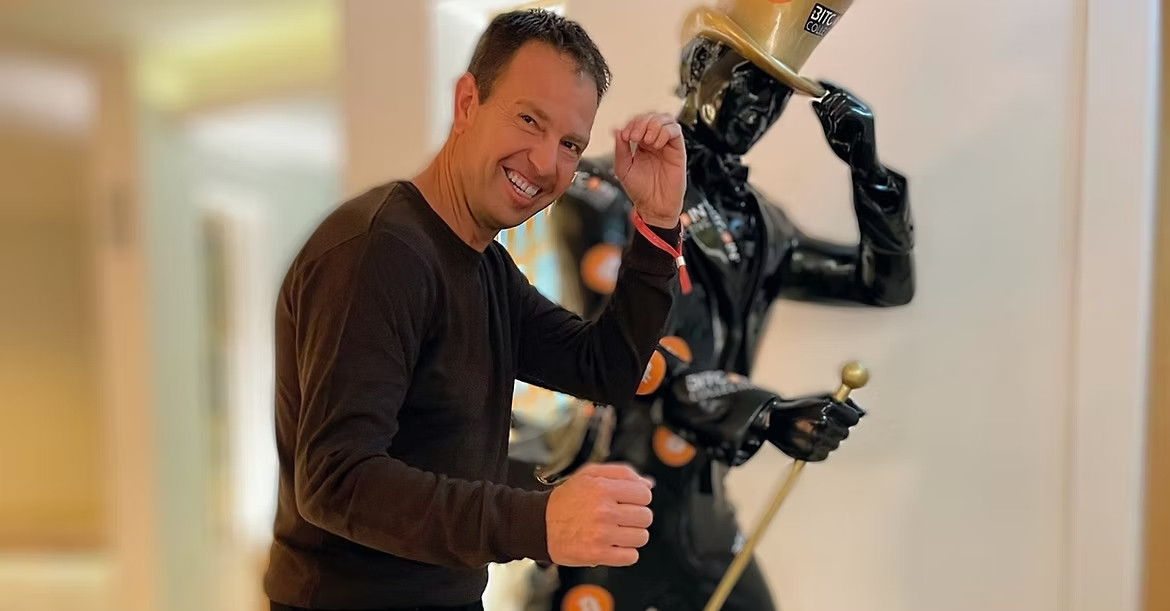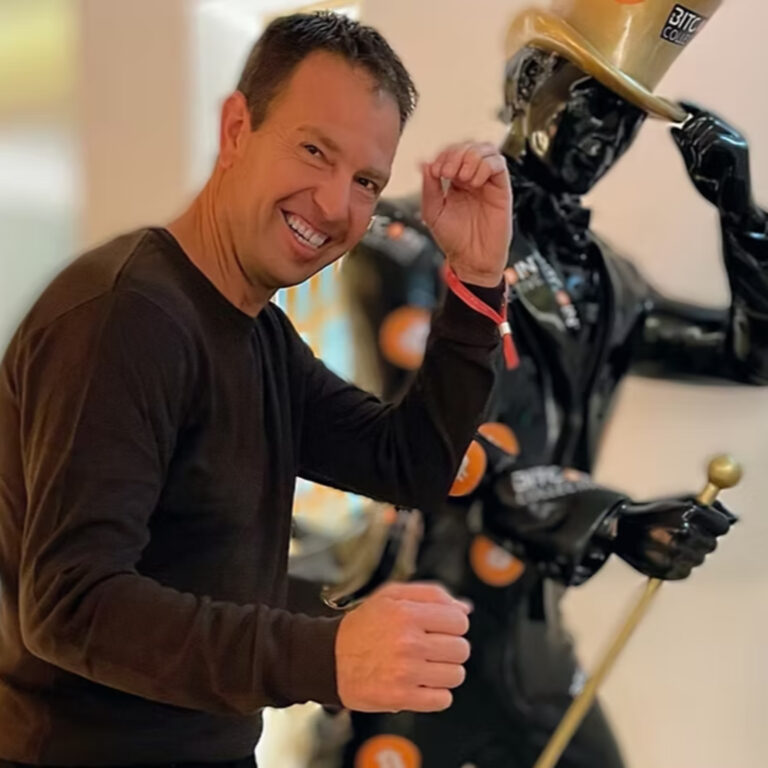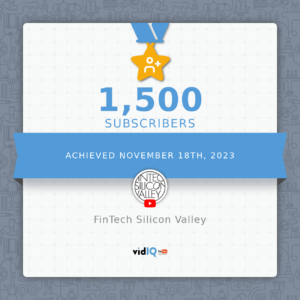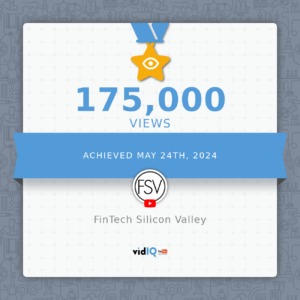
Sheel Mohnot is CoFounder of Better Tomorrow, a $75M seed stage venture capital fund investing in Fintech companies globally. His own startup experience includes 2 successful FinTech exits – a payments company and a high-stakes auction company, and he was previously GP of the 500 Fintech fund. He formerly worked as a financial services consultant at BCG and started his FinTech career at the non-profit p2p lender Kiva.
Sheel is CoFounder of Better Tomorrow, a $75M seed stage venture capital fund investing in Fintech companies globally. His own startup experience includes 2 successful FinTech exits – a payments company and a high-stakes auction company, and he was previously GP of the 500 Fintech fund. He formerly worked as a financial services consultant at BCG and started his FinTech career at the non-profit p2p lender Kiva.
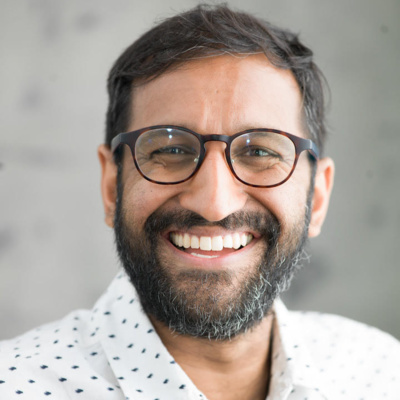
Transcription
Pemo: Welcome, Sheel. So great to connect with you. I’m sorry we missed you at Money2020. How was it? Was it great?
Sheel Mohnot: It was so fun. I mean, it’s so great to see everyone again in person. And I count many in the FinTech world amongst my close friends. So it was special. It was really [inaudible 00:00:21] for me.
Pemo: Us FinTech fanatics.
Sheel Mohnot: Yeah. The nerds.
Pemo:
Really, really great to actually finally connect with you. And I wondered if you could talk to me about your new firm. I love the name, by the way. Obviously we’re all looking for a better tomorrow. So, spot on. So tell me about it, and what you guys are doing.
Sheel Mohnot: Yeah, absolutely. So there are two GPs, myself and Jake. We’re both former FinTech founders. And we felt like there was a gap in the market at the seed stage for FinTech founders leading rounds of FinTech founders. We feel like, at the seed stage is when founders need the most support. And part of it is founder empathy. Part of it is partnerships and BD and all these things that if you are a FinTech founder, you can uniquely offer. So we felt like there was a gap in the market and we set out to fix that gap. So we started this fund about two years ago, fund one is a $75 million vehicle. And we lead pre-seed and seed rounds of FinTech companies. Average check has been somewhere north of a million, maybe 1.25, something in that range. And we’ve invested in about the 30 companies so far, typically as a lead, and very occasionally as a follower.
Pemo: Great. So does that mean you actually formed that firm and named that name before the crisis? Really?
Sheel Mohnot: Yeah.
Pemo: Wow. Even if you didn’t consciously know what was coming, you obviously got it on some level.
Sheel Mohnot: Yeah. You know, we do invest for a better future. And it sounds kind of hokey, but it actually is what gets us up in the morning, and why we’re excited to do this job. So we invest in companies that do create a better future. And that’s one meaning of the word. I would say the other meaning of the word is, or the phrase rather, is we are constantly striving to improve ourselves. So after an event we ask ourselves, what could we do better tomorrow? And so that’s the other side of the words.
Pemo: Right. Okay. Are you walking around, away from your mic? I just noticed you sort of zoomed out a bit.
Sheel Mohnot: Oh, does it sound not as good?
Pemo: That’s better. Great. I guess just the audience will want to hear here it clearly. We just went a little quieter.
Sheel Mohnot: Oh, sorry about that.
Pemo: That’s okay. So I was wondering then, first of all, do you want to talk about some of your portfolio companies since the new fund, and what you’re doing, what are you focusing on there?
Sheel Mohnot: Sure. Maybe I can highlight a few. It’s always hard to choose your favorite child, as you know.
Pemo: Yep.
Sheel Mohnot: So maybe I can start out by talking about the first company we invested in from this fund. And then maybe I can choose some ones that are of different types.
Pemo: Great.
Sheel Mohnot: The first company we invested in from this fund is actually kind of a good story, because we didn’t have a fund when we agreed to lead this round. So we agreed to lead the seed round or co-lead the seed round with friends at TLV in a company called Unit. Unit is a banking as a service player based in New York and Israel. And in September of 2019, we committed to leading the round. But then we said, give us a few months to come up with the money.
Pemo: Fair enough.
Sheel Mohnot: We didn’t want to write the seven figure check out of our own pocket.
Pemo: No, of course not.
Sheel Mohnot: So then we went out and raised the fund. And when we raised the fund, a big part of our pitch was like, “Here’s the one company we have committed to invest in.” And then in December we had raised some money, and we wired the money to Unit. And the company’s done really well. So I think they’ve carved out a space and I think are, in my opinion, the market leader in this space, which is helping tech companies build financial features into their products. So accounts, cards, payments, building that into their cards, as a banking as a service player. They’ve done phenomenally well. We led the seed. They had a series A shortly afterwards, and then a series B earlier this year.
Pemo: Great. Fantastic. So they were the star of the show and they helped you get your fund raised.
Sheel Mohnot: Yeah. They were the only [crosstalk 00:05:26] portfolio company when we were fundraising.
Pemo: That’s a good story.
Sheel Mohnot: Whenever LPs wanted to reach out to our portfolio, we said, “Okay, here’s the number.”
Pemo: It’s good to get stories about the grassroots in venture, because sometimes people just think it’s all such shiny toys and smarts. So it’s good to hear about the human aspect. Thanks for sharing that. Did you want to talk about-
Sheel Mohnot: Yeah. I can assure you, it’s not all shiny.
Pemo: I know. I just know so many VCs. But it’s just that image, I guess, because it’s to do with money, people’s brains
Sheel Mohnot: Of course. So, aside from Unit, I thought maybe we could talk about the international stuff we’ve done. So about a third of our portfolio is outside of the US. And when we look at markets outside of the US to invest in, we think about markets that are large on their own and then have the ability to move into an adjacent market, ideally. So when we say markets that are large, we think about a hundred million or more population, growing smartphone penetration. And so, where we have invested is Nigeria, Indonesia, India, Pakistan, Mexico, and Brazil. And there probably are a few other markets we would consider as well. But those are some markets we really like for a variety of factors. But we think most of them fit that criteria, big enough on their own and the ability to move adjacent. And we think that they all are markets that are experiencing a tremendous amount of growth and are very underserved from a FinTech perspective. So we’ve made investments in each of those markets.
Pemo: Fabulous. And of course, I just have to ask you about the elephant in the room. How has the crisis affected you? I know I started doing the audio podcast in March last year when the lockdown started in Palo Alto, because my business went immediately. And so I noticed that all the VCs were telling me then, well, we’re not sure how it’s all going to go. And now I’m hearing such incredible reports about how hot the market is and how valuations are very high. So do you want to talk about your experience over this last one and a half years or so?
Sheel Mohnot: Yeah, of course. Well, it’s been particularly interesting for us. I think we were fundraising at the beginning of the pandemic. And actually, we had done a first close in December of 2019. And then we were hoping to do a next and final close in March of 2020. March 30th was the date that we had planned for. And as you might imagine, that did not go as planned. In fact, we had folks who had signed documents back out. And so, it was really a tough time. So we actually, at that point, sent a note to our LPs and said, “Hey what we told you in terms of fund size is not going to hold.” At the time, we had been planning for a $60 million fund. And we said, “Hey, you know what, we couldn’t pull it off for this March close. Maybe we’ll just have a 30 or $40 million fund. But it’ll be okay because valuations will be lower, and we’ll still be able to get great ownership.”
Sheel Mohnot: So as you might imagine, the story turned out very differently than we thought it was going to be then, at the beginning of April. And in May as the stock market came roaring back, so did LP interest in our fund. And not only actually did we go to our 60 million target, we ended up pretty significantly oversubscribed and had to cut a bunch of people back, and ended up at a $75 million fund, which I’m quite happy we did instead of the 60. And it’s been fantastic. Valuations have been higher than what we would desire, frankly. And I think anyone in venture would tell you that.
Sheel Mohnot: But overall, there’s also been a tremendous amount of innovation and really fantastic companies. I think I saw more great companies in the past year than I had seen in years before. There’s a bunch of reasons for it. As FinTech is having its moment in the sun, finally, people like us have been talking about it for a long time. So great founders are choosing to build in FinTech when they might have chosen a different category before. And so that’s one component that’s driving a lot of great stuff. Another thing that’s happening is, some of these founders are now second time FinTech founders, or they’ve come out of really fantastic companies where they learned a lot, like they were at Platt or Stripe. Any of these companies that have done fantastically well has now a next generation of founders. And so some of those are building really fantastic companies.
Pemo: Wow. That’s great, and nice to hear. And so amazing that the challenges you faced and you’re here quite happily with a 70 million fund, because definitely everyone’s plans went askew last year at the beginning of the crisis. And no one seemed to know. I had no idea that life was going to change forever. At the time, I thought I’ll just wait it out, do a few podcasts. Wrong.
Sheel Mohnot: Yeah. So actually, coming back to Unit, me and the founder of Unit, our one portfolio company at the time, we ended up deciding, when the pandemic started, okay, we’ll get a place together and ride it out. So we got a place for two weeks.
Pemo: Okay. Yeah. Well, enough said. So tell me what your take is now on the future. What do you see coming up the pipeline? Not that it’s very easy to predict anything these days now. But I guess now, we are living with COVID, and all the challenges in the supply chain and so forth. What do you see coming up the pipeline? What do you think the future looks like for us as regards investments, startups?
Sheel Mohnot: I think despite FinTech of course having a moment, as I said. I think we are actually in the very early innings of FinTech. And I think today FinTech is a specific thing where there are funds like mine that just invest in FinTech. But I think tomorrow, there are a lot of companies that are FinTech that don’t look like FinTechs today. And we’re excited in investing in the companies that will help build the infrastructure to power the FinTech of those companies. Something I think about is, every decacorn in FinTech that serves consumers or SMBs, I think should have an equivalent infrastructure player. So an example would be Chime. So Chime is, of course, a FinTech decacorn. And Unit would be the example of an API layer that allows you to build Chime, that allows the next generation of Chimes to be built.
Sheel Mohnot: We invested in a company recently called Salsa, that is payroll as a service. And so, if you are building the next Gusto, you could use Salsa to build it. And when I say building the next Gusto, I don’t think the next Gusto will be a standalone product. I think the next Gusto will be built into another workflow or vertical SaaS software that an SMB uses, and payroll will be an integral part of that product. But the payroll won’t be built by the company themselves. It’ll be outsourced to a company like Salsa.
Pemo: Oh, interesting. Yeah. And this just leads me to a question that I didn’t expect to ask you. But I came from Europe originally, over 11 years ago. And I was amazed at how, when I started all the FinTech meetups in the Valley and San Francisco, I was amazed that the incumbents seemed to be so slow in jumping on the innovation, because Europe was much more ahead. And also Asia. So I wondered, I did ask a few people at the time, why is the US so slow? What’s your perspective on that?
Sheel Mohnot: Yeah. I think there are a bunch of things. It’s like, they’ve been kings for so long. They haven’t had to innovate. It’s just like, if you’re the big dog and doing well and profiting, you don’t necessarily think about innovation as much. In some of these other markets, they’ve been fighting for a while. So I think that’s one of the challenges that the US banks have. And then it’s also a capital structures thing, where how you spend money to innovate is challenging, and acquiring companies is challenging. So I think there have been some challenges in the banking world that have opened the path for FinTechs.
Pemo: And so, it’s such a gift really to FinTech, in the US particularly, the crisis happened, because the banks shut down immediately and everyone had to go digital, really, which was sort of good and hopefully supporting the FinTech ecosystem.
Sheel Mohnot: Absolutely, yeah. A lot more people opened accounts with digital banks. The insurance world, if you had a traditional life insurer, you’d have to have an in-person exam. But some of these digital life insurers, you didn’t need one. So it’s been really good for our portfolio.
Pemo: Great. Well, I wish you all the success, Sheel. So great to speak to you today, and get your perspective on what’s going on. And hopefully, we’ll circle back sometime in the future to see how your fund’s going.
Sheel Mohnot: That sounds great. Thank you so much.
Pemo: Fantastic. Thanks for your time.
Sheel Mohnot: Absolutely.
